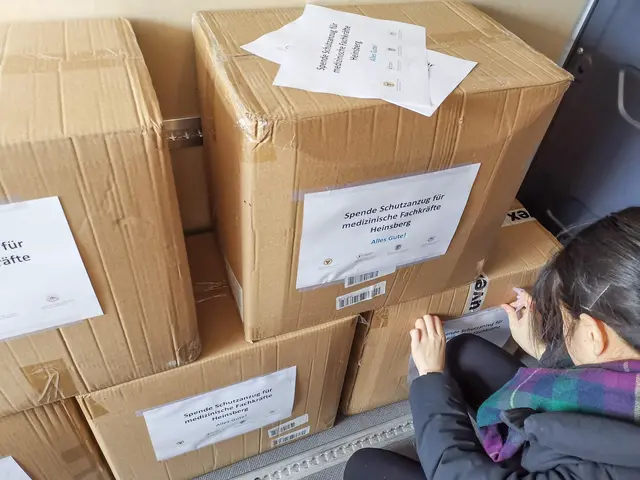A few days ago, a Lufthansa cargo plane landed in Germany, carrying 40 boxes of Favipiravir, a drug that believed to be effective in treating novel coronavirus disease.
The drug was produced and donated by Zhejiang Hisun Pharmaceutical Co., Ltd., based in east China's Zhejiang Province, and delivered to German doctor Thomas Rabe to deal with COVID-19.
Thomas Rabe's family has an indissoluble bond with China. More than 80 years ago, during the Nanjing Massacre, his grandfather John Rabe, known as the "Oskar Schindler of China," formed the Nanjing Safety Zone with many international comrades, which took in and saved more than 200,000 Chinese lives.
With the novel coronavirus epidemic raging in Europe, related drugs have become scarce in Rabe's hometown.
Not long ago, Wu Ken, China's ambassador to Germany, received a letter from Dr. Thomas Rabe of the Heidelberg University School of Medicine in Germany, who asked China to help his hospital and his family with a drug currently being produced in China -- Favipiravir.
Dr. Rabe had been working with colleagues in the hospital to contain the epidemic. Seeing that the hospital was in urgent need of Favipiravir, his first thought was to ask China for help.
"I believe the Chinese people will definitely help us," Rabe said in the letter.
Receiving the letter, the Chinese Embassy in Germany quickly sent the message to the related departments. Under the coordination of the Ministry of Industry and Information Technology, it reached Hisun, the only enterprise in China that produces Favipiravir.
In fact, Favipiravir was only approved for sale on Feb. 15, becoming the first approved drug with potential curative effects on novel coronavirus pneumonia in China.
"We will always respect our international friends who helped us in the past," said Jiang Guoping, chairman of Hisun. The company received a dispatch note from the joint prevention and control mechanism of the State Council on March 21, saying that Dr. Rabe asked for 10 boxes of medicine.
"We immediately decided to donate the drugs and increase the amount to 40 boxes. We also added English instructions and experience of clinical use in China to the packaging, hoping to provide as much support as we could," added Jiang.
Under the close watch of the enterprise, this batch of drugs was quickly produced and packed, however, the biggest challenge had yet to be confronted -- international logistics.
"During the epidemic period, international logistics and courier services were severely affected. Airlines also have restrictions on transport of drugs. We tried every means but to no avail."
Finally, with the help of the Ministry of Industry and Information Technology, Zhejiang Provincial Government and other departments, the Chinese Embassy in Germany reached out to Lufthansa Cargo, who has a direct flight from Shanghai to Germany. With the help of Lufthansa, the medicine was eventually handed over to Dr. Rabe.
This is not the first time that the Chinese people have returned the favor to a benefactor.
Over 80 years ago, when John Rabe returned to Germany in February 1938, he was persecuted by the secret police for giving speeches exposing the atrocities of the Japanese forces. After the Second World War, he was arrested for once being a Nazi member. Though he was later released, he lost his job, leaving his family on the verge of starvation.
As news of Rabe's situation spread to China, Nanjing citizens started a donation campaign for him. The then Chinese government also provided him with money and food on a monthly basis. These aid from China helped Rabe and his family pull through the most difficult years.
More than 80 years have passed and the friendship of mutual help between Chinese and German friends continues, said Ambassador Wu Ken.
(By Xinhua writers Yin Xiaosheng, Qu Lingyan)
 简体中文
简体中文







